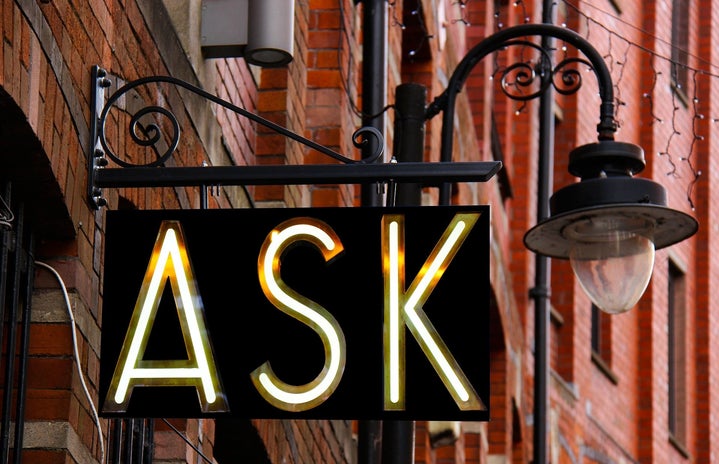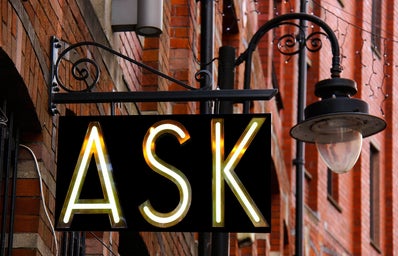When we noticed the article “The 100 Things Every 20-Something Needs to Realize” being posted and reposted on Facebook last week by some of our favorite ladies, we thought we’d give it a look. We hoped we’d find an article riddled with inspirational truths for us 20-somethings at a time in our lives where we could all use a little advice– whether about our future career paths, falling in love, or just growing up in general.
We were disappointed to find, however, that what Paul Hudson had in mind when writing this article was less inspiration and more provocation.
Although some of the pieces of “advice” on his 100-point list were valid–his assertion of Facebook as a waste of time and his recommendation to start using your alarm clock, for example–for the most part, this list seems to represent a thinly-veiled condemnation of “things women are doing wrong” in a way that’s eerily reminiscent of the 1950s “Good Wife’s Guide.”
We at HerCampus Kenyon took issue with the fact that the article is seemingly directed at women–telling them how to act and what to feel–though the article presents itself as targeting all “20-somethings.” Hudson undermines his valuable pieces of advice like “savings accounts are not for dummies” by throwing in belittling, shocking remarks like “if you give it up too soon then he’ll consider you conquered and move onto the next mountain.” (#35)
So, Mr. Hudson, thank you for your attempt to dispense sage advice to us 20-somethings at a critical time in our lives, but we at HerCampus Kenyon have a few things we think you need to realize as well:
- Dating: You’re giving us a lot of conflicting advice–you tell us that dating is a waste of time (#10) and not to date unless we think it may lead to love (#11) and then later on to “not be afraid to fall in love” (#70). Well, which is it? We for one have always been under the impression that dating in your 20s is supposed to be fun and low-key, not focused on finding “the one.” That’s a lot of pressure, Mr. Hudson.
- Body Image: Telling us that we need to take at least an hour to get ready every morning to look presentable (#1), that shaving is mandatory in a big way (#3), that pizza is turning us into “tubs of oily cheese” (#4) and that we owe it to our partner to keep up a good appearance throughout our relationship (#29) creates the idea that appearance and physical qualities are the best characteristics that we, in our 20s, have to offer. We certainly hope you don’t think that’s true. Our 20s is our time to discover our talents, passions, and quirks–and if we look good while doing all that soul-searching, well all the more power to us.
P.S. Don’t think we don’t notice that many of these “stay-hot” rules seem to be directed foremost at the ladies. - Body Image II: If you’d been keeping up with the news, you’d know that the American Medical Association has now classified obesity as a disease. So, saying that it is morally wrong to be obese (#80) makes you sound ignorant, insensitive, and uneducated.
- Mental state: ADD and depression are real mental illnesses, and ones that people in their 20s deal with at a higher rate than most other age cohort groups. Sure, it’s been proven that doctors have been over-diagnosing ADD in the last 15 years, but some speculate that much of this shift towards over-diagnosing grew out of the fact that ADD was highly underdiagnosed in the past. Besides, blaming individuals for their illnesses certainly isn’t going to help matters. Get your facts straight.
- Motivation: As we said before, when we first stumbled upon this article, we were hoping for some inspiration to get us through the confusing journey of being a 20-something. What we got instead were tips like “lower your expectations and you won’t be so disappointed.” (#65) Sure, lowering our expectations may cushion us from the hard blow of disappointment when our dreams don’t pan out (and we’re prepared to fail, trust us), but it doesn’t promote the ideas of optimism, looking for the best in people, and finding the silver linings to your darkest days that can lead to an overall, sustained happiness.
- Motivation II: The mantra of “do less to produce more” (#59) will make us all lazy and unambitious. What kind of eye-opening realization is the one that tells us to cut corners and get away with doing the least we can?
- Sex: This is the big one for us. Around #31 this quickly turned into a list of things that women are doing woefully wrong in bed. You don’t have to be on the “feminist bandwagon” to see how it’s totally inappropriate, offensive, and archaic of you to depict women as merely a source of male pleasure, with no desires or needs of their own. And we’re not exactly sure what you’re referring to when you say “women are never free,” (#36) but we just wanted you to know: just as you may get bored with us by week 2, we’re getting bored with you by point #25.
- On Being Alone: Maybe we are “alone” in the existential, “love yourself before you learn to love another” kind of way, but with the networks of family, friends, lovers, colleagues, schoolmates, and acquaintances that make up a bustling, 20-something life, we’re never really alone.
To the women who have read, heard of, loved, or hated Mr. Hudson’s article, we’d like to quote Steve Jobs and say to you all: “stay hungry, stay foolish,” eat that 3rd piece of pizza if you want. Shave your legs twice a day if it makes you feel good, but don’t do it because Paul Hudson told you to. You are more–far more–than any list can make you out to be. So close out of Paul Hudson’s article and set the world on fire. And remember: “you is kind, you is smart, you is important.”
Sources: Elite Daily, YouTube, Twitter, Good Wife’s Guide, The Guardian, Huffington Post, The Capital Press
[Photo Sources: Flickr Creative Commons ]

